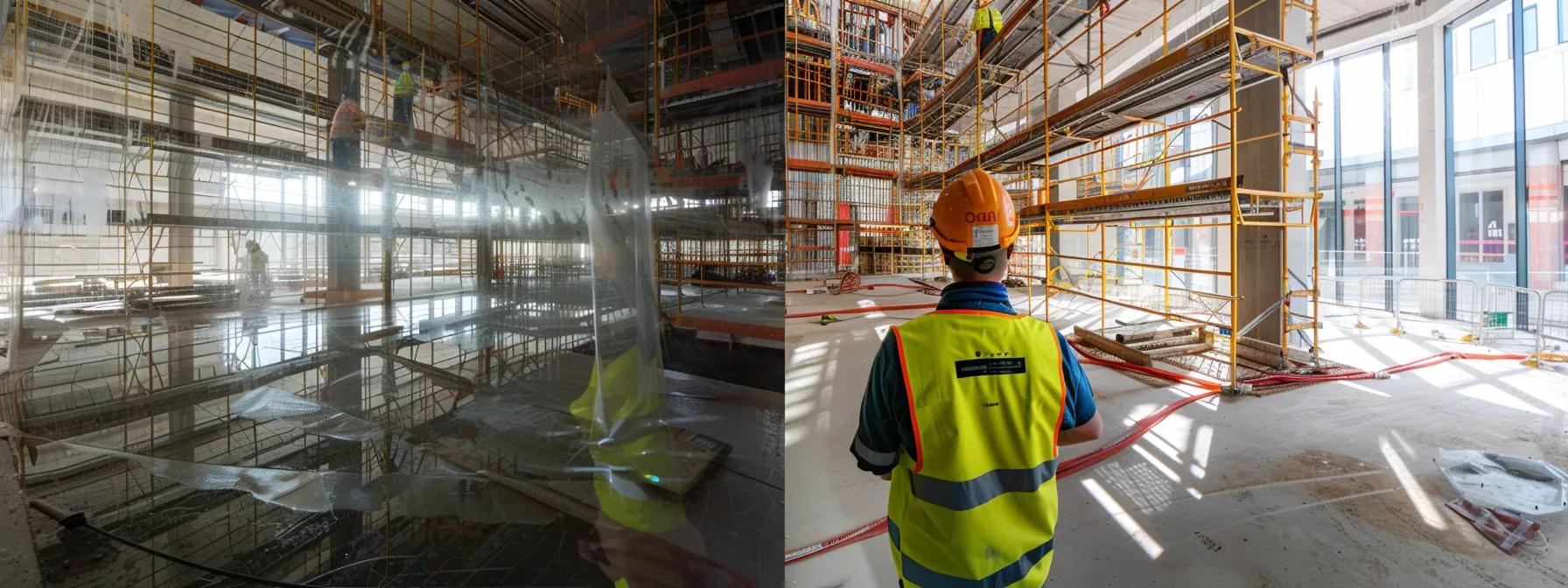Effective content marketing is essential for construction brands aiming for success. Did you know that brands with a solid content strategy can see significantly higher engagement rates? This article will delve into effective content marketing strategies for construction branding, explore how to craft compelling content, and discuss methods of distributing this content. By understanding these approaches, readers will learn how to improve their brand management and create advertising campaigns that resonate with audience behavior. Addressing common challenges in content marketing, this article aims to provide practical solutions for construction marketing consultants seeking to elevate their brand presence.
Key Takeaways
- Establishing a clear brand voice is essential for effective construction marketing strategies
- Utilizing case studies can showcase expertise and enhance visibility in the construction market
- Content strategies should include both educational resources and engaging visuals to foster trust
- Leveraging social media effectively can amplify brand reach and customer engagement in construction
- Setting clear KPIs helps measure the success of content marketing efforts and refine strategies
Understanding Effective Content Marketing Strategies for Construction Branding

Identifying key elements of brand success is vital for construction firms looking to enhance customer satisfaction. Defining the brand voice and messaging creates a consistent identity, while aligning content with business goals ensures relevant materials, such as web pages and white papers, resonate with the target audience. Together, these strategies serve as critical assets in fostering effective construction branding.
Identifying Key Elements of Brand Success
Establishing a strong brand presence in the construction industry involves identifying core elements that contribute to brand success. Crafting a unique selling proposition sets a firm apart from competitors and defines its value to potential clients. Strategic use of social media marketing, coupled with targeted email marketing campaigns, can effectively engage the audience and showcase the brand‘s strengths. Additionally, optimizing the Google Business Profile ensures visibility and credibility, while influencers in the construction niche can amplify reach and build trust within the community.
Defining Your Brand Voice and Messaging
Defining a construction brand’s voice and messaging is critical for effective content marketing, especially in a competitive landscape. This entails creating a voice that resonates with the target consumer while highlighting innovation and industry expertise. For example, when engaging potential clients at a trade show, a construction marketing consultants firm can convey its unique selling proposition through tailored messaging that emphasizes its commitment to quality and leads to better lead generation.
- Establish a unique brand identity.
- Create messaging that reflects innovation.
- Utilize effective channels for consumer engagement.
- Focus on lead generation strategies.
- Adapt messaging for events like trade shows.
Aligning Content With Business Goals
Aligning content with business goals is essential for construction firms seeking to boost their brand success. By tailoring marketing campaigns to reflect objectives, such as increasing awareness of home improvement services or showcasing innovative video production techniques, companies can directly engage their target audience. Furthermore, optimizing content for mobile devices is crucial, as many potential clients researchconstruction services on their smartphones, making accessibility a key component of effective marketing strategies.
The foundation of construction branding lies in the content that resonates. Next, the focus shifts to crafting compelling pieces that tell the right story and build lasting connections.
Crafting Compelling Content for Construction Brands

Crafting Compelling Content for Construction Brands
Well-designed content strategies are vital for construction brands aiming to enhance visibility and engagement. Utilizing case studies effectively showcases expertise, while developing educational resources for clients fosters trust and authority. In addition, creating visual content captures attention and improves organic search results. Each of these elements plays a role in strengthening online presence and preference among potential clients.
Utilizing Case Studies to Showcase Expertise
Utilizing case studies is an effective way for a construction business to showcase expertise and increase visibility in a competitive market. By detailing successful projects, firms can illustrate their problem-solving capabilities and the impact of their services, which aligns with goal setting for future initiatives. Sharing these case studies through targeted email marketing and on marketing social media platforms further enhances engagement with potential clients, allowing them to see real-world applications of a company’s offerings and capabilities.
Developing Educational Resources for Clients
Developing educational resources for clients plays a critical role in enhancing their user experience and establishing brand authority in the construction sector. By offering practical guides, how-to articles, and informative graphics, companies can address common challenges faced by potential clients, thereby fostering trust and confidence in their expertise. Furthermore, these resources can support local search efforts, as they provide valuable content that resonates with community needs while showcasing leadership in the industry.
Creating Visual Content That Captures Attention
Creating visual content is a strategic imperative for construction brands aiming to engage potential clients effectively. By incorporating elements that showcase green building practices, companies can position themselves as thought leaders in sustainable construction. Utilizing calls to action within these visuals not only directs viewers to additional resources but also enhances interaction during key touchpoints, ultimately driving conversion and fostering a deeper connection with the audience.
Crafting strong content is just the beginning. Once the story is told, getting it into the right hands is what truly matters.
Distributing Content Effectively in the Construction Industry

Distributing Content Effectively in the Construction Industry
Choosing the right channels for audience engagement is crucial in a digital marketing strategy. Research into preferred social media platforms helps identify where target audiences are most active. Engaging with industry influencers and partners expands brand reach, while a well-organized content calendar ensures timely and relevant posts. Each of these strategies plays a pivotal role in amplifying brandvisibility and connection within the construction sector.
Choosing the Right Channels for Audience Engagement
Selecting the right channels for audience engagement is crucial for construction brands seeking to maximize their content marketing efforts. A marketing agency that understands the construction sector can help identify the most effective platforms for reaching the target audience, whether it’s through social media, email campaigns, or industry-specific forums. Collaboration with industry influencers can amplify brand awareness, enhance credibility, and ultimately yield a higher return on investment.
- Identify effective platforms for engagement.
- Utilize a marketing agency for strategic insights.
- Implement collaboration with industry influencers.
- Enhance brand awareness through targeted campaigns.
- Focus on maximizing return on investment.
Engaging With Industry Influencers and Partners
Engaging with industry influencers and partners is a critical component of an effective content marketingstrategy within the construction sector. By collaborating with influential figures, construction brands can amplify their reach through social media advertising, driving traffic to tailored marketing collateral and newsletters that showcase the company’s expertise. Such partnerships not only enhance credibility but also create opportunities for strategic content creation that resonates with target audiences, ultimately fostering a stronger brand presence in the marketplace.
Utilizing Social Media to Amplify Brand Reach
Utilizing social media is essential for construction brands seeking to enhance their content strategy and engage effectively with customers. A constructionmarketing agency can guide firms in identifying the right platforms to reach their audience, showcasing projects and customer service achievements that resonate with potential clients. By sharing informative content and leveraging social media advertising, companies can increase visibility, drive engagement, and ultimately boost revenue through improved customer interactions.
| Strategy | Description | Impact |
|---|---|---|
| Content Strategy | Developing focused plans for social media content that highlights projects, services, and customer testimonials. | Strengthens brand presence and attracts new customers. |
| Platform Selection | Identifying social media platforms most utilized by the target audience. | Maximizes engagement and customer reach. |
| Customer Service | Using social channels for prompt responses and interactions with customers. | Enhances customer satisfaction and fosters loyalty. |
Effective content distribution is more than just reaching an audience; it lays the groundwork for meaningful engagement. Assessing how these efforts perform is the next step, revealing what truly resonates in the construction sector.
Measuring the Impact of Content Marketing Efforts

Measuring the Impact of Content Marketing Efforts
Establishing clear key performance indicators (KPIs) is essential for assessing the success of content marketing strategies within the construction sector. By analyzing engagement metrics, firms can gain insights into audience behavior, allowing them to refine their strategies. Adapting content based on data insights further enhances reputation and effectiveness, ultimately supporting search engine optimization and web design efforts.
Setting Key Performance Indicators for Success
Setting key performance indicators (KPIs) is a fundamental step in measuring the effectiveness of a marketing strategy for construction brands. Experts recommend focusing on metrics that reflect engagement across social media and website performance, such as clicks and shares related to brochures or promotional materials. By establishing clear KPIs, brands can position themselves as thought leaders in the industry while identifying areas for improvement, ultimately enhancing their reputation and aligning their content efforts with business goals.
Analyzing Engagement Metrics to Refine Strategy
Analyzing engagement metrics is a vital aspect of refining a content marketing plan for construction brands. By examining data points such as page views, click-through rates, and social media interactions, businesses can assess the effectiveness of their copywriting and marketing campaigns. This insight enables construction firms to tailor their strategies for both residential and commercial projects, ensuring that the content resonates with their target audience and drives desired outcomes.
| Metric | Description | Actionable Insight |
|---|---|---|
| Page Views | Total number of times a webpage is viewed. | Indicates popularity and helps identify which topics engage the audience. |
| Click-Through Rate | Percentage of users who click on a link compared to those who view the content. | Helps assess the effectiveness of calls to action in the content. |
| Social Media Interactions | Engagement levels such as likes, shares, and comments on social media posts. | Reveals audience preferences and content sharability. |
Adapting Content Based on Data Insights
Adapting content based on data insights is critical for enhancing customer engagement in the construction sector. By utilizing analytics to understand how audiences interact with various materials, organizations can refine their approach to search engine marketing and targeted advertising. For example, if data reveals that content related to sustainable building practices generates higher engagement, construction firms should prioritize these topics to shape consumerperception and drive more effective campaigns.
Content marketing can be rewarding, but challenges often loom large. Understanding these hurdles is essential for any construction company aiming to thrive in a crowded marketplace.
Overcoming Challenges in Construction Content Marketing

Addressing misconceptions about content marketing is essential for construction brands seeking credibility and effective audience engagement. Managing time and resources through automation enhances content consistency, vital for maintaining a strong online presence. Additionally, keeping informed on industry trends is crucial for creating relevant social media content that resonates with clients, ultimately supporting good content marketing strategies.
Addressing Misconceptions About Content Marketing
Addressing misconceptions about content marketing is crucial for construction brands that aim to establish credibility and effectively engage with their audience. Many firms believe online advertising is the sole driver of success, overlooking the impact of local SEO and engaging content tailored to their community’s needs. By emphasizing strong construction marketing strategies that combine both informative content and visibility enhancement techniques, brands can capture the attention of potential clients and build trustworthy relationships.
| Misconception | Reality | Impact on Strategy |
|---|---|---|
| Content Marketing is Optional | It is essential for establishing authority and trust. | Encourages investment in ongoing content creation. |
| Only Online Advertising Matters | Local SEO plays a vital role in visibility. | Integrates SEO with content strategy for better reach. |
| Immediate Results are Expected | Content marketing takes time to build relationships. | Promotes a long-term view for construction marketing efforts. |
Managing Time and Resources for Consistent Output
Managing time and resources effectively is essential for construction brands to achieve consistent output in their content marketing efforts. This can be accomplished by developing a structured content calendar that outlines key topics, deadlines, and responsibilities, ensuring that all team members are aligned with marketing goals. Implementing automation tools for scheduling posts and email campaigns can also streamline the process, allowing construction firms to maintain a steady flow of content while focusing on their core operations and client services.
- Develop a structured content calendar.
- Ensure team alignment with marketing goals.
- Utilize automation tools for efficiency.
- Maintain a steady flow of content.
- Focus on core operations and client services.
Staying Updated With Industry Trends
Staying updated with industry trends is vital for construction brands aiming to maintain relevance and connection with their audience. Following changes in technology, building materials, and design practices enables firms to create timely and appealing content that addresses current market demands. Engaging with industry publications, attending trade shows, and participating in professional networks can provide insights that inform content marketing strategies, fostering a brand‘s reputation as an informed leader in the construction sector.
Challenges will always rise, but the future holds opportunities. As the landscape shifts, understanding the trends in construction branding becomes essential for lasting success.
Exploring Future Trends in Construction Branding

Embracing innovative content formats will be essential for construction brands looking to stand out in a saturated market. Leveraging technology for enhanced engagement can create immersive experiences that attract potential clients. Furthermore, anticipating changes in consumerbehavior allows firms to tailor their strategies effectively, ensuring relevance in an evolving landscape. Each of these aspects will contribute significantly to future success in construction branding.
Embracing Innovative Content Formats
Embracing innovative content formats is essential for construction brands aiming to capture attention in a competitive market. Using video walkthroughs of projects, interactive infographics, and augmented reality experiences can engage clients more effectively. These formats not only showcase a brand‘s capabilities but also provide potential customers with immersive experiences that enhance understanding and foster trust.
- Incorporate video content to showcase projects.
- Utilize interactive infographics for engaging information delivery.
- Leverage augmented reality for immersive experiences.
- Foster trust by demonstrating expertise through innovative formats.
- Enhance client understanding of complex construction concepts.
Leveraging Technology for Enhanced Engagement
Leveraging technology for enhanced engagement is essential for construction brands aiming to connect with their audience effectively. Utilizing advanced tools such as virtual reality and interactive design software allows firms to create immersive project presentations that captivate potential clients. These innovations not only showcase a brand‘s capabilities but also facilitate a clearer understanding of complex construction processes, ultimately fostering trust and encouraging informed decision-making among customers.
Anticipating Changes in Consumer Behavior
Anticipating changes in consumerbehavior is essential for construction brands aiming to remain competitive in a dynamic market. As clients increasingly prioritize sustainability, digital solutions, and personalized experiences, brands must adapt their content marketing strategies accordingly. By analyzing trends through customer feedback and market research, construction firms can tailor their offerings to meet evolving expectations, ensuring relevance and engagement with their audience:
- Understanding shifting priorities toward sustainability.
- Utilizing customer feedback for insightful adjustments.
- Adapting marketing strategies to digital preferences.
- Personalizing experiences to enhance client engagement.
Conclusion
Effective content marketing strategies are fundamental to the success of construction brands in a competitive landscape. By defining a unique brand voice, aligning content with business goals, and leveraging innovative formats, firms can enhance customer engagement and visibility. Implementing targeted campaigns and utilizing advanced technologies allows companies to connect meaningfully with potential clients. Ultimately, diligent attention to content marketing not only fosters trust but also positions construction brands as leaders in their industry.

